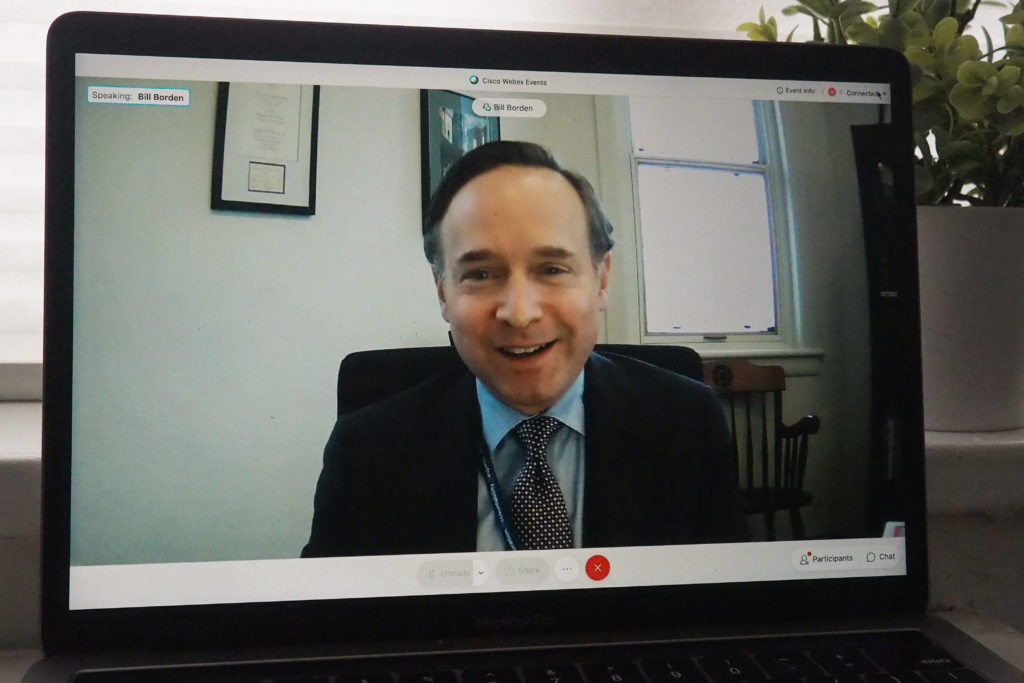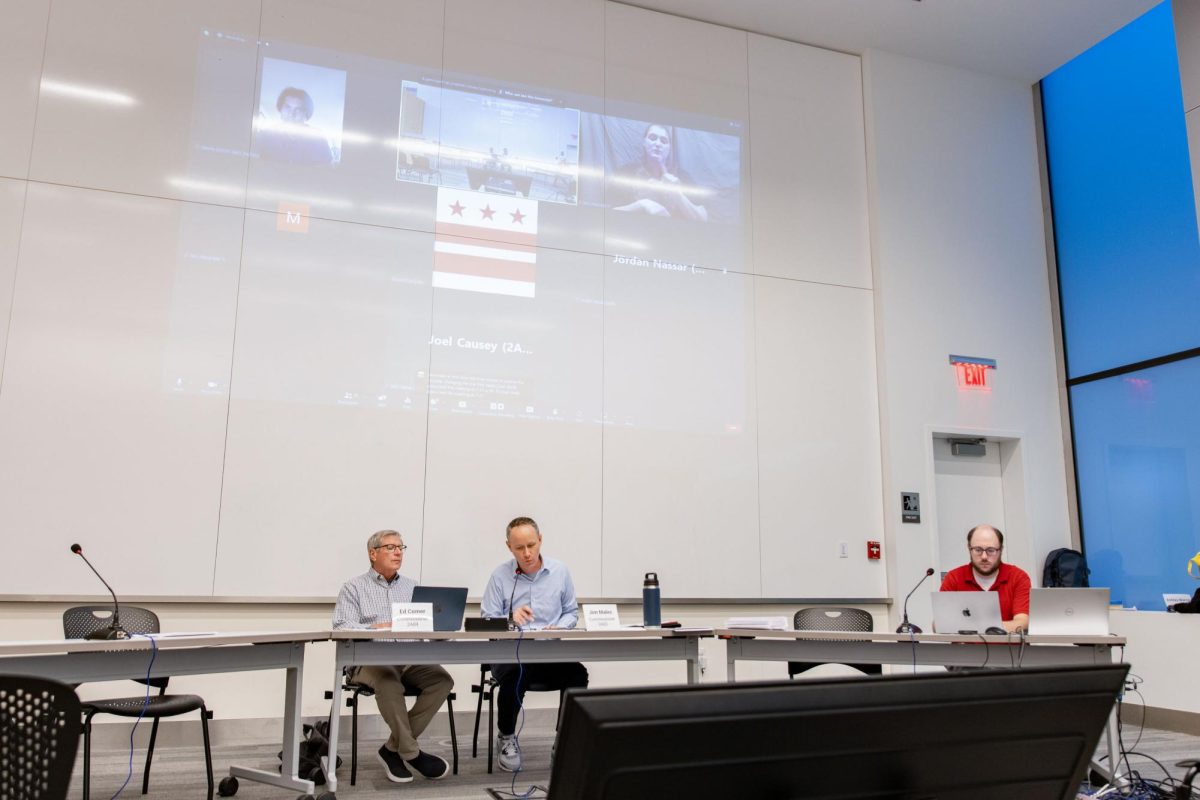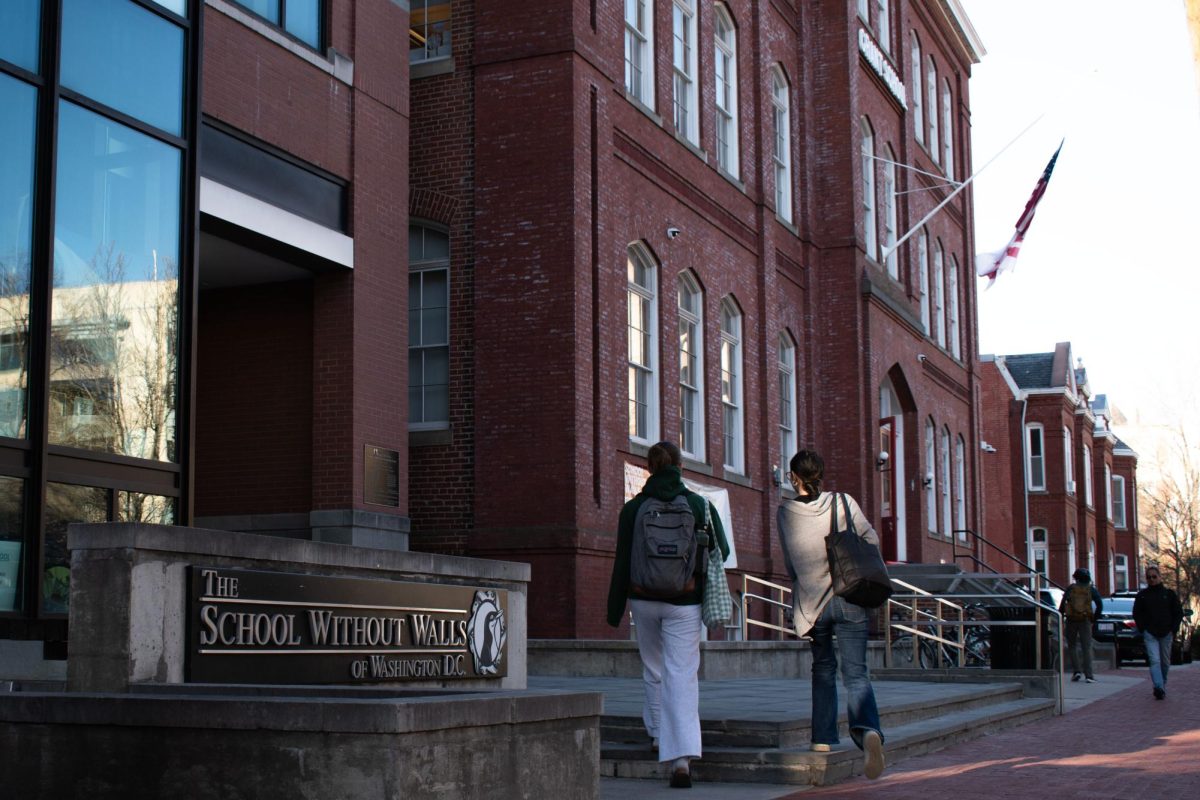Administrators said D.C. health officials will treat out-of-state students living in the District as city residents when they become eligible for the COVID-19 vaccine.
Lynn Goldman, the dean of the Milken Institute School of Public Health, said at Friday’s Faculty Senate meeting that officials are also examining vaccine regulations for Virginia and Maryland to help facilitate access to the vaccine for GW community members. William Borden, the chief quality and population health officer for the Medical Faculty Associates, said vaccinations for health care workers at the GW Hospital are “largely complete for those who want them.”
“A lot of this is listening, it’s listening to what people’s concerns are, what are their questions and giving them time with what’s really a personal decision,” Borden said. “For me, I feel that the research is compelling that these are very safe and effective vaccines, but everyone needs to come to that decision on their own.”
GW launched clinical trials for Moderna Inc.’s COVID-19 vaccine last August, and the GW Hospital was named a distribution site for Pfizer’s vaccine in December. A group of hospital employees became the first to receive the vaccine that same month.
Borden said officials are “actively developing” events to support community vaccination, increase access to the vaccine and address racial and geographic disparities in the District’s vaccine distribution. These disparities have continued as Wards 4, 5, 7 and 8 – where Black residents make up more than half of the population – continue to have the highest number of COVID-19 cases.
“There’s been quite a disparity in terms of vaccination rates by wards in the District, and D.C., I think has done a commendable job in trying to increase vaccinations in Wards 5, 7 and 8, and we’ve been a part of that solution in terms of our distribution as well,” he said.
Borden said officials so far have delivered a total of 8,600 vaccinations – which officials are delivering at the Lerner Health and Wellness Center – to D.C. residents over the age of 65 and health care personnel.
“As I mentioned, we’re still providing support for our colleagues who are considering vaccination, though I do think compared to national numbers we’ve seen a good uptake among our GW health care workers,” he said.
He said while hospital officials are currently limited to vaccinating patients who live in the District, they are working to figure out how to vaccinate Medical Faculty Associates patients who live outside of the District and “hope that will change soon.”
Arthur Wilson, the chair of the senate’s executive committee, said at the meeting that officials are working to compile the quantitative and qualitative data of a faculty survey of University President Thomas LeBlanc’s leadership. He said the qualitative results of the survey are currently “somewhere between 300 and 500 pages” so he expects the results “might come a few days after” Feb. 22, when the results were originally slated to be released.
Wilson also said he is “concerned” about transparency and shared governance at the University but did not elaborate on what prompted his concerns.
“Some time in the near future, we really need to sit down and talk about what should be confidential, what should be up to various limitations on communication and what should be regarded as public,” he said. “I am struggling with the best way to have that conversation because the issue has come up in at least two different contexts, and I’m sure it will come up in others, so that’s something that we need to be thinking about.”
LeBlanc also said after several officials took a pay cut last April to mitigate the financial impact of the pandemic, the salaries have been “restored” to their June 2020 levels, but officials did not receive any bonuses in fiscal year 2020. He said officials have not had any conversations about taking bonuses in fiscal year 2021.
Blake, the provost, also provided a report on the University’s core academic indicators and outlined how academic metrics like GW’s enrollment levels and yield rate have been affected by the pandemic.
Faculty senators unanimously voted to approve a slate of members as the executive committee nominating committee, which will work to nominate the members for the executive committee in the 2021-2022 session.







